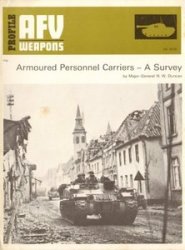Policing and Coercion after Communism

Brian D. Taylor
Cambridge
State Building in Putin’s Russia
Building a strong Russian state was the central goal of Vladimir Putin’s presidency. This book argues that Putin’s strategy for rebuilding the state was fundamentally flawed. Brian D. Taylor demonstrates that a disregard for the way state officials behave toward citizens - state quality - had a negative impact on what the state could do - state capacity. Focusing on those organizations that control state coercion, what Russians call the “power ministries,” Taylor shows that many of the weaknesses of the Russian state that existed under Boris Yeltsin persisted under Putin. Drawing on extensive field research and interviews, as well as a wide range of comparative data, the book reveals the practices and norms that guide the behavior of Russian power ministry officials (the so-called siloviki), especially law enforcement personnel. By examining siloviki behavior from the Kremlin down to the street level, State Building in Putin’s Russia uncovers the who, where, and how of Russian state building after communism.
Brian D. Taylor is Associate Professor of Political Science in the Maxwell School of Citizenship and Public Affairs at Syracuse University. Previously, he served as Assistant Professor at the University of Oklahoma. He earned his Ph. D. from the Massachusetts Institute of Technology in 1998 and holds a master of science from the London School of Economics and a B. A. from the University of Iowa. He is a 2011 Fulbright Scholar to Russia and was a Carnegie Scholar from 2002 to 2003. He was also a Fellow at the Belfer Center for Science and International Affairs and the Olin Institute for Strategic Studies at Harvard University. He is the author of Politics and the Russian Army: Civil-Military Relations, 16892000, and his work has appeared in Comparative Politics, Comparative Political Studies, Problems of Post-Communism, Europe-Asia Studies, International Studies Review, Survival, Millennium, and the Journal of Cold War Studies.
“The ‘power ministries’ of the police, the security services, and the military have been central to state building efforts in post-Soviet Russia, but have been vastly understudied. Brian Taylor’s fascinating book pries open the power ministries to explore how organizational pathologies, weak oversight, and increasingly authoritarian rule undermined efforts to build state capacity in Russia. Taylor demonstrates that in many respects, the state is hardly more effective under Putin than under Yeltsin, despite Russia’s return to economic growth and prominence on the international stage. With its keen attention to detail and impressive data collection, State Building in Butin’s Russia is an important work that should interest Russia watchers and scholars of state building alike.”
- Timothy Frye, Columbia University
“Brian Taylor offers a clear-eyed account of Vladimir Putin’s efforts to rebuild the power of the state in Russia in the 2000s. Taylor distinguishes between state capacity and state quality, and finds only modest improvements in state capacity under Putin and none in the degree to which the state actually serves the public interest. Focusing in particular on the coercive agencies of the state - the military, police, and security forces - Taylor shows that under Putin, they were largely ineffective in combating crime and terrorism but were often used for the purposes of political repression and intimidation. Taylor concludes that centralizing and consolidating power at the top is a very different enterprise from improving the quality of governance in a state.”
- Thomas F. Remington, Emory University




 World History
World History









